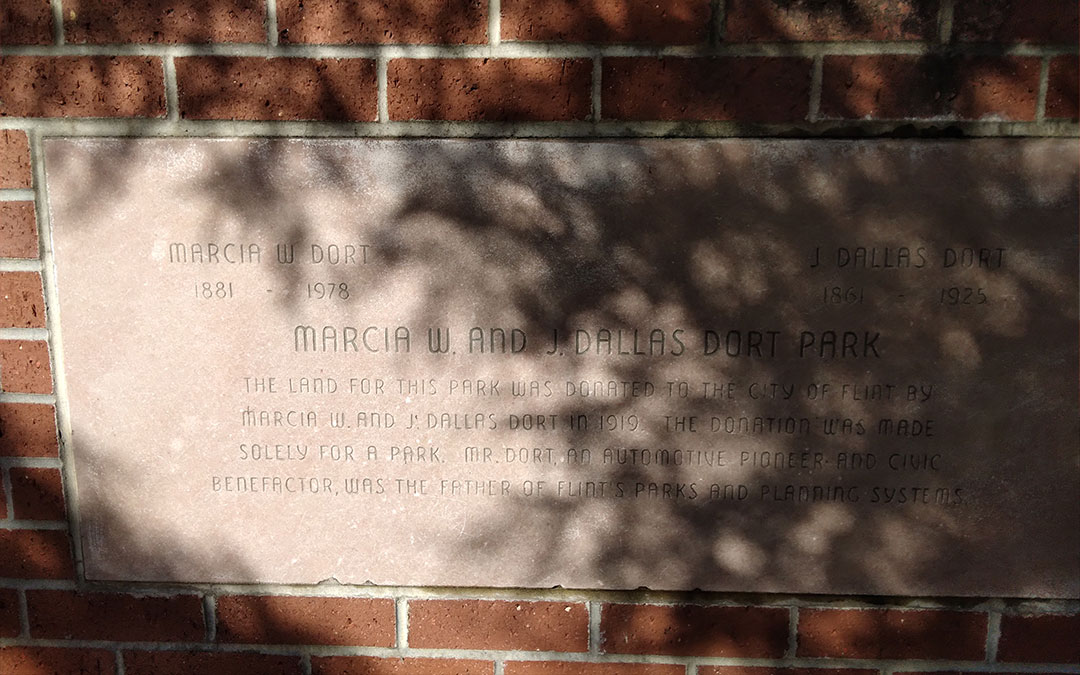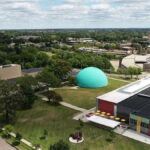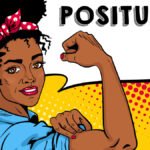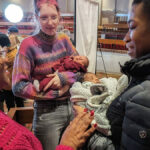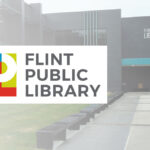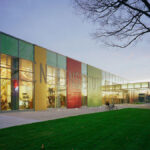One hundred years ago J. Dallas Dort was Flint’s biggest hometown promotor and benefactor. Today the Dort family is mainly remembered for their contributions to the Flint Institute of Music and the St. Cecelia Society. However, in 1906 Dort paid for the services of Warren Manning of Boston in developing a city-wide park plan for Flint, likely his most important civic gift to his adopted hometown.
Dort was deeply interested in developing a professional master plan for park development with a focus on beautifying the riverbank and providing recreational areas in all parts of the city. Dort proposed to hire and pay Manning’s fees and expenses if the Flint Council would agree which they did. Manning submitted sketches of the proposed boulevard and park system after input from the parks and playgrounds committee of the Flint Improvement League, the Citizen’s Park Committee and city council. The plans were submitted in August 1906 and council approved and adopted it.
Dort didn’t just pay for the plan; he gave property to the city for parkland.
In 1909 the Durant-Dort Carriage Company gave Flint Block 15 in the developing Oak Park neighborhood on the condition that it be developed according to the Manning plan. When the city needed money to buy dredges for Thread Lake, Dort paid for them. In 1924 Dort and his wife gave the land for what is Woodlawn Park to the city as well. In total Dort gave six parcels of land to the city outright for parks before his death in 1925.
There is a plaque mounted on a wall at a Hurley Medical Center parking lot reading: ‘Marcia W. Dort, 1881-1978, J. Dallas Dort, 1861-1925. The Land for this Park was donated to the City of Flint by Marcia and J. Dallas Dort in 1910. The Donation was made solely for a park. Mr. Dort, an automotive pioneer and civic benefactor, was the father of Flint’s Park & Planning System.’
While it acknowledges Dort’s generosity, it is wrong in the details.
In 1912 the city wanted to acquire an undeveloped block near Hurley Hospital and Stevenson School. The area, bound by Sixth and Seventh Avenues, Stone and Begole Streets, was for sale at the then bargain price of $4,683.36, or about $145, 550 today. The city did not have the funds to purchase the property so Dort bought it and told the city council he would sell it to them when they had the funds, charging them what he had paid for the land plus any taxes that had fallen due. Would Dort have been so generous if he had known that the city wouldn’t buy the property from him until seven years later in 1919?
Once the city acquired the property between Stevenson School and Hurley Hospital, they named it Hurley Playground. It was intended to serve the residents of the 5th Ward and the students at Stevenson School. The city cleared the area and put in several tennis courts, but the property was mainly undeveloped. The Parks Board wanted the city to vacate the street between the park and Stevenson School so that the park and school playground would function as one unit. The city declined to do so.
In 1927 Hurley expanded, beginning construction of a ten-story addition in front of the existing hospital. To facilitate the expansion the city agreed to vacate Begole Street between Sixth and Seventh Avenues.
Once construction was underway the hospital just needed a place to put the dirt excavated for the new basement and a stretch of land for a new front lawn. Perhaps the parks board would like to grade the park with the fill from the excavation and maintain it as green space? The parks board declined.
So, in May 1927 the City Parks Board and the Hurley Hospital Board agreed to terms for the transfer of Hurley Park to Hurley Hospital. The hospital agreed to pay the parks board $15,000. The amount spent maintaining the property over eight years. The money was to be used for replacement facilities in the fifth ward.
Dort’s name is still attached to a park, the current Dort Park on Hamilton Avenue owes it’s name to its proximity to the former Dort Elementary School which was named for J. Dallas Dort.

